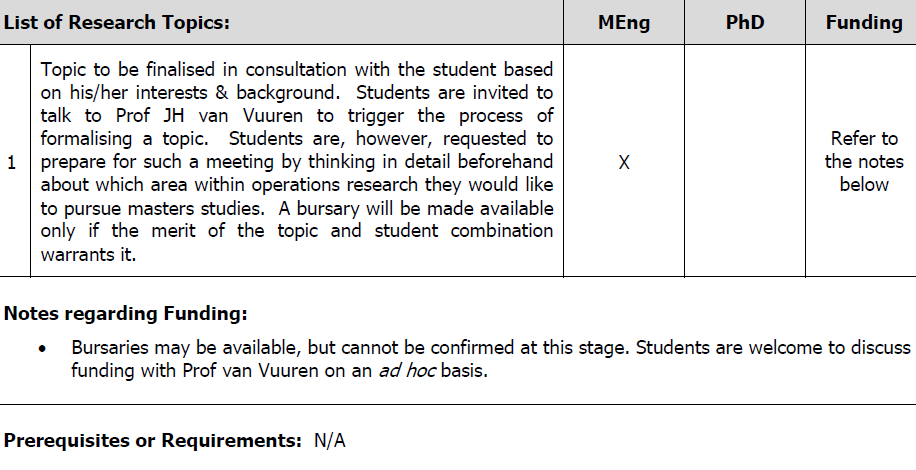
Field of Research:
Systems Modelling, Operations Research, and Decision Support
Lecturer: Prof James Bekker
We study complex, dynamic stochastic systems using computer simulation with the aim of optimising system performance. Such systems include manufacturing plants, food processing plants, mining operations and services in hospitals, medical laboratories and commercial banks. The focus is on multi-objective optimisation, with particular emphasis on ranking and selection methods that, in conjunction with simulation-optimisation techniques, must find solutions with the minimum computational effort while guaranteeing correct selection. An example of our work (in the single-objective domain) can be found here.
We also work in the domain of Industrie 4.0. Research is focus on real-time scheduling of systems, e.g. a job shop, using simulation and optimisation algorithms. The simulation model is the digital twin of the real-world system, and resides in the cloud. It uses information collected via sensors to propose schedules as the business processes evolve over time. See this example.
The research strategy followed is to identify a suitable topic with a well-defined scope via preliminary research. Therefore, no specific topics are currently available.
Field of Research:
Systems Modelling, Operations Research, and Decision Support
Lecturer: Prof Jan van Vuuren, Stephan Nel, Dr Christa de Kock
The Stellenbosch Unit for Operations Research in Engineering (SUnORE) focuses its research on the design and implementation of mathematical and statistical modelling techniques in support of effective decision-making in industry. In order to achieve this, system responses to changes in their input parameters are considered in the form of sensitivity analyses and scenario planning. This knowledge of the system responses is then used to determine suitable trade-off solutions that may be recommended as desirable courses of action in complex management problems. The modelling techniques typically used derive from the fields of linear, integer, nonlinear and dynamic programming, multi-objective optimisation, utility theory, Markov chains, queuing theory, inventory theory, game theory, graph theory, simulation and forecasting. This modelling approach finds natural application in areas such as the banking and insurance sector, lean manufacturing, efficient retailing and warehousing, responsible natural resource management, the formulation of robust agricultural practices, military decision support and various instances of streamlining within the public sector (e.g. energy planning and urban traffic congestion alleviation).




